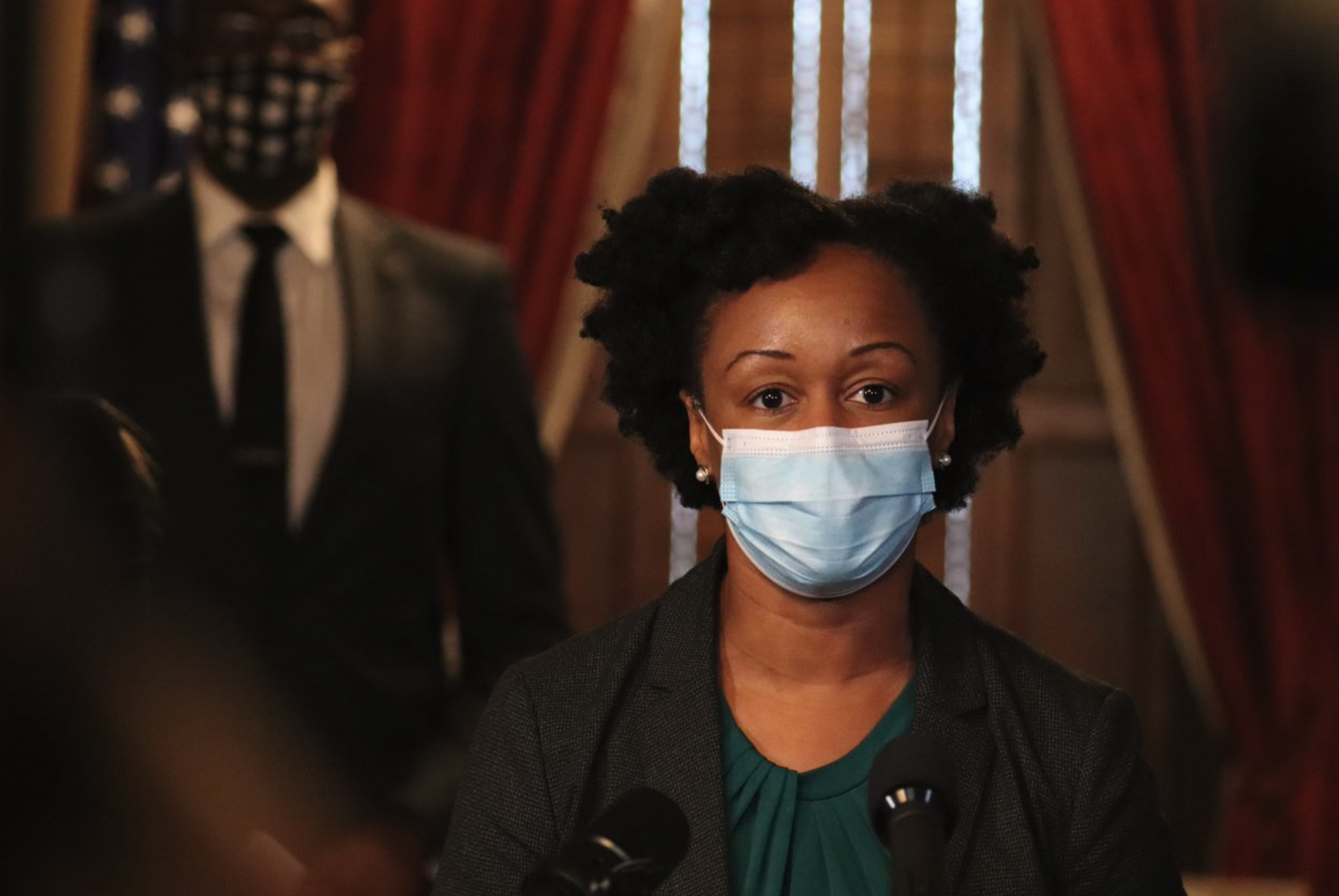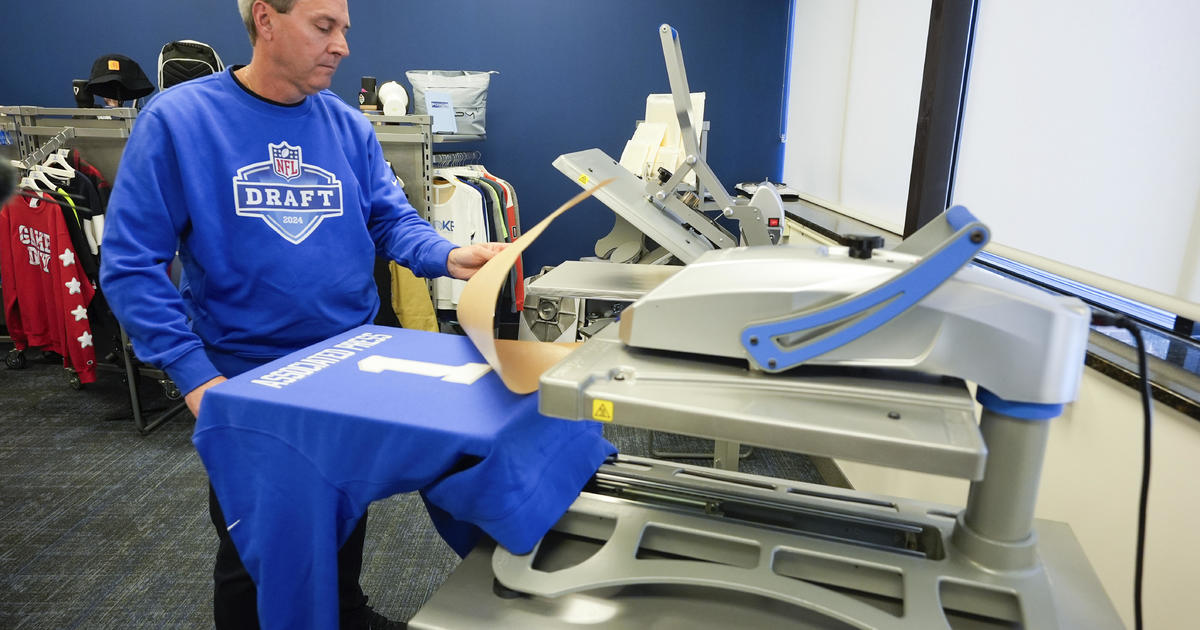Here's Gov. Whitmer's Dec. 3 COVID-19 Press Conference
(CBS DETROIT) - Governor Gretchen Whitmer held a press conference on Dec. 3 on the state's response to COVID-19.
Whitmer and the Michigan COVID-19 Task Force on Racial Disparities, Chaired by Lieutenant Governor Garlin Gilchrist II, released an interim report detailing the significant progress Michigan has made in protecting communities of color from the spread of COVID-19.

"From the beginning, our administration has listened to medical experts and taken a fact-based approach to eliminating COVID-19 in our most vulnerable communities, and we have seen significant progress," said Whitmer. "Lieutenant Governor Gilchrist and the leaders on the Task Force have been crucial in helping us dramatically reduce the number of cases, hospitalizations, and deaths in communities of color by expanding testing and providing crucial support to community organizations. Our work is far from over, and cases and hospitalizations are still rising statewide, but this team remains dedicated to working with medical experts and protecting our communities, frontline workers, and small businesses. Our immediate focus now is holding our progress, flattening the infection curve, and remaining vigilant with mask wearing and social distancing."
The Task Force's interim report details a number of actions the state has taken to protect communities of color, frontline workers, and small businesses from the spread of COVID-19.
The governor said, as of Nov. 16, more than 24,000 tests have been administered in previously underserved communities across 21 Neighborhood Testing sites.
These state-operated sites provide COVID-19 testing on a consistent schedule, several days per week. All sites offer free testing, and a prescription is not required for someone to be tested, nor is any form of ID required.
From March and April to September and October, the average cases per million per day for African American Michiganders dropped from 176 to 59. In the same period, the number of probable deaths per million per day among African American Michiganders dropped significantly - from 21.7 to 1.

Gilchrist said the coronavirus pandemic has "shined a light on the health, economic, and educational challenges that communities of color face daily."
"(Thursday's) report shows that significant progress has been made toward our goal to reduce these disparities over the past six months. But as cases continue to rise, we need to recognize that our work is not done because each of us have a role to play to make sure that we defeat this virus," said Gilchrist. "When we successfully make it to the other side of this pandemic, we will hug each other a little tighter, check in on each other a little more, and be proud of the work we did to make each other's lives better."
NEXT STEPS FOR THE TASK FORCE
In order to sustain the progress made and to better address ongoing disparities, the Task Force will continue working around the clock to protect the most vulnerable communities.
The Task Force has identified a number of areas to focus on heading into the holiday season and the cold winter months, including:
- Closing the digital divide in telehealth and virtual learning to ensure equitable access for all Michiganders;
- Increasing enrollment in health insurance plans by making it easy for Michiganders to find out about their options for affordable care, such as Medicaid and federal marketplace plans;
- Building mobile testing infrastructure that can also be extended for other health services such as vaccine administration;
- And raising awareness of racial- and ethnic disparities in medical care to ensure that every Michigander, no matter their race, can get safe and quality care in Michigan.

Here are updates from Dr. Joneigh Khaldun, Michigan Department of Health and Human Services chief medical executive and chief deputy director for health.
"We are still seeing a slight decline in the rate of new cases over the past 13 days. But, our case rates remain alarmingly high," said Khaldun.
Rates in Michigan are five times than what the state saw at the beginning of October.
Every area in the state has a case rate of over 450 cases per million people per day. The case positivity rate ranges from 8.5 percent in the Upper Peninsula to 15 percent in the Kalamazoo area.
Khaldun says hospitals are still working hard to be able to take care of COVID and non-COVID patients, but "many are near or at capacity."
81 percent of hospital ICU beds are full Khaldun said.
The department is still identifying many outbreaks across the state. The top categories for identified outbreaks are:
- Longterm care facilities
- K-12 schools
- Manufacturing health care
- Office settings
- Restaurants and bars
"We continue to work with our local health departments on reaching out to positive cases and identify their contacts and potential outbreaks," she said.
However at the current state, Khaldun says state and local workers are unable to keep up, causing outbreak data to be limited.
Khaldun also shared important information about quarantine.
The CDC has recommended the quarantine period should be 14 days. This week, the CDC released new data indicating that 99 percent of cases will become infectious within 10 days of exposure or developed symptoms. Based on the new data, the CDC has offered an option for how to potentially shorten the quarantine period in certain circumstances.
14 days still remains the standard for quarantine and is the safest way to know you will not develop an infection after exposure to COVID-19, local and state public health staff will now have the option to allow people who have not developed symptoms during the 10 days after an exposure to be released from quarantine.
"With this new quarantine option, people should still remain vigilant by checking for symptoms daily for the entire 14 days after exposure and they should still continue to do important things like wearing masks, washing hands and social distancing to prevent the spread of the virus," Khaldun said.
The chief medical executive says this is great news and means "while we all still have to remain careful, people can get back to their daily lives, work and school more quickly after being exposed."
The Michigan Department of Health and Human Services announced 6,955 coronavirus cases in the state and an additional 81 deaths Wednesday.
This brought the state total of COVID-19 cases to 373,197 and 9,405 deaths as of Dec. 2.
© 2021 CBS Broadcasting Inc. All Rights Reserved. This material may not be published, broadcast, rewritten, or redistributed.



